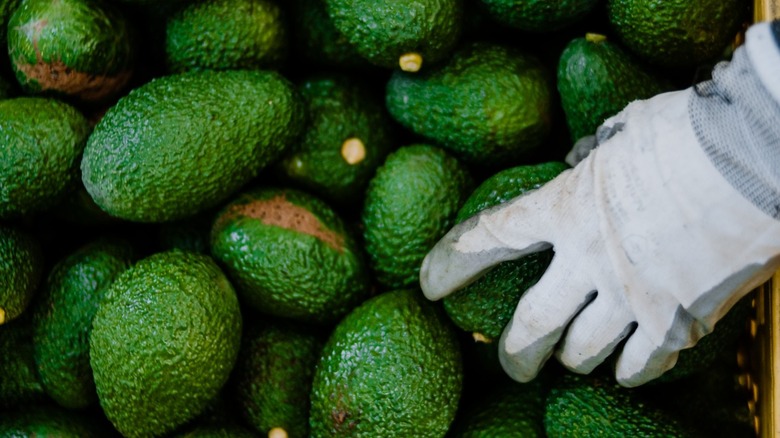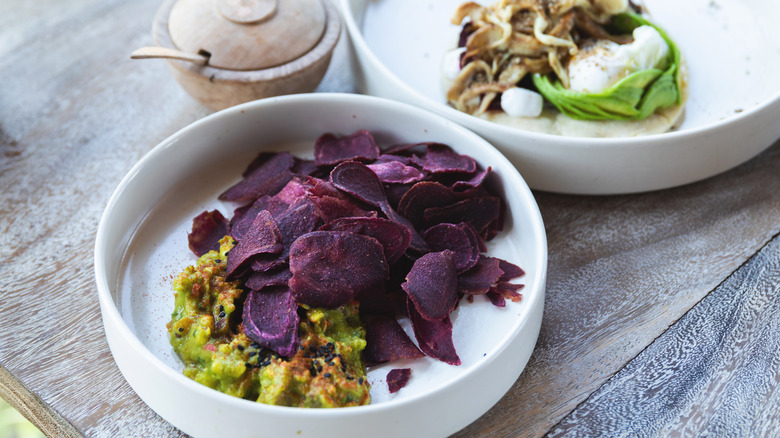Why Avocados Could Become Extinct Sooner Rather Than Later
Spread on sandwiches, whipped into smoothies, fried into chips, and folded into desserts, avocados are everywhere. But is our obsession with this rich, fleshy fruit in danger? Perhaps.
Avocados require a lot of water to grow. A lot. Per DanWatch, it takes 70 liters of water to grow one avocado; that's about 19 gallons. (Something like a tomato, according to Fair Observer, requires a little over 1 gallon). Given this water reality, it's no surprise that for the past decade, the U.S. has witnessed the decline of American avocado production (via USDA Economic Research Service).
In California, where more than 90% of American avocados are farmed, the absence of adequate rain has dramatically reduced crops, impacting both yield and size of the fruit itself. When rainwater isn't sufficient, farmers have to use even more water to grow crops, resulting in higher production costs and bigger strains on natural community resources. As a result, imports increase to meet supply demands. According to the USDA, the United States imports about 90% of its avocados today, up nearly 50% from less than 20 years ago.
Yet importing avocados comes with other problems.
Rethinking an avocado obsession
In places like Chile, avocado farming has affected local water sources, leaving farmers with land leached from nutrients necessary to grow other healthy crops (via LifeGate). Add in political issues, dwindling rivers, and "stolen water," and there's no wonder avocado production is in danger. As reported in Insider, one top chef has gone so far as to label avocados "the blood diamonds of Mexico." And with Americans now importing the bulk of the nation's domestic supply — over 2.5 billion pounds of avocados, according to the ERS — it might be time to rethink the avocado fad.
From Colorado to Canada, restaurants are trying to reduce reliance on avocados, even completely removing the item from menus, to help save them from extinction. Chefs are getting creative with substitutions: fava beans, artichokes, zucchini, and even peas have been used to make guacamole (via The Guardian). In England, one restaurant has proudly shared its recipe for "Imposter Guacamole," a creative mixture of pistachios and spices. And a farm in Italy, as covered by Avocado Farm Italy, is working to educate consumers about more sustainable farming practices.
So whether you love the texture or are looking to give your diet a boost, you have options if you're searching for more mindful avocado alternatives.

